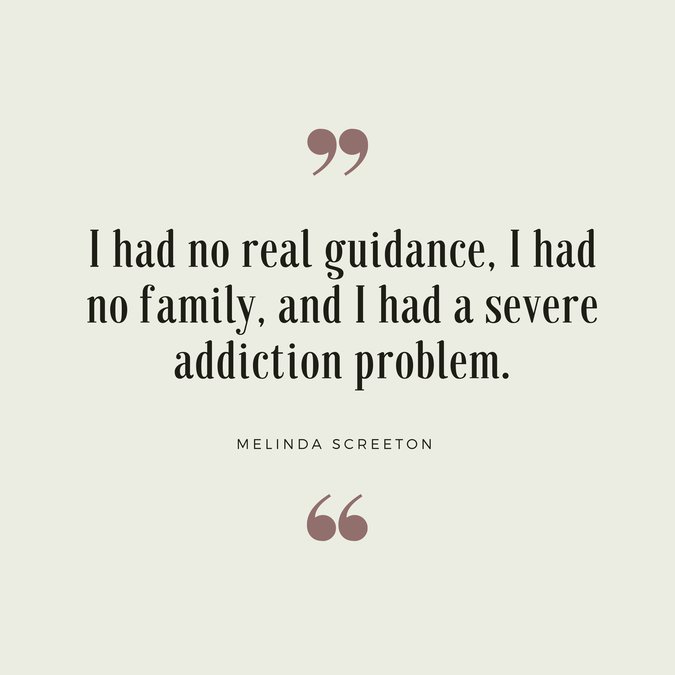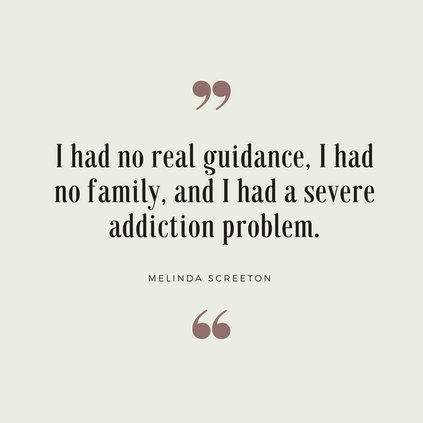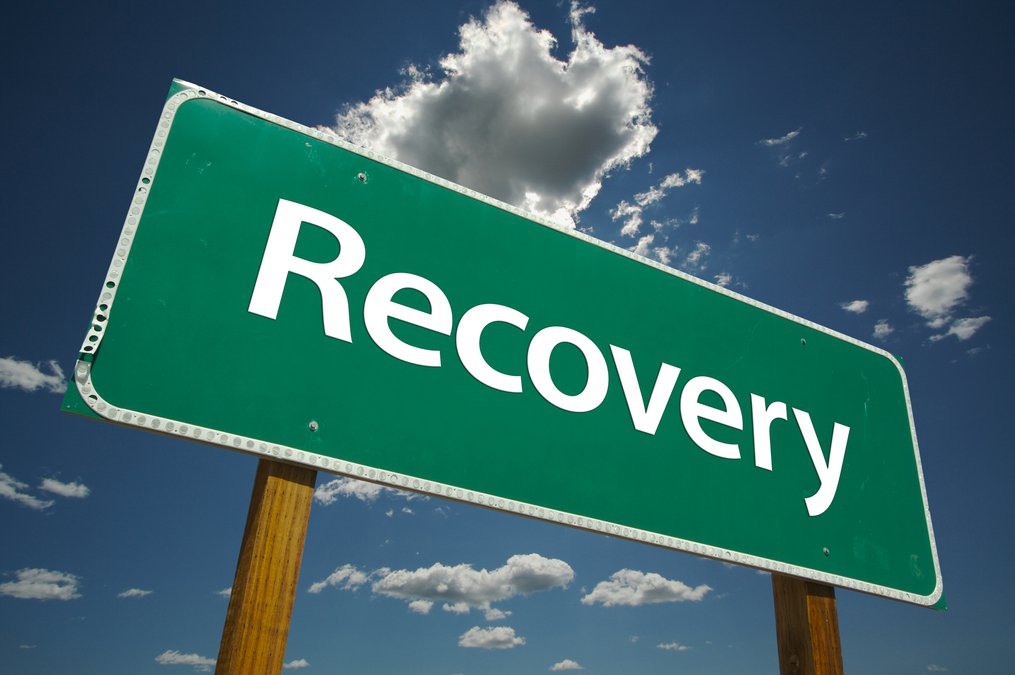Melinda Screeton knows a thing or two about the healing power of grace, forgiveness, and personal accountability — and now it’s time to pay it forward.
Recently, Screeton introduced herself to the Oakdale City Council in the hopes of garnering hope and interest in a project that’s rooted in compassion and gaining traction in other counties, states and countries.
A Light In The Dark
The project, at its core, is a place to offer rehabilitation for those with addiction that goes far beyond simply requiring a few mental health visits and then tossing the addicted person back on the streets without any appropriate aftercare.
Improperly treated addiction issues fracture into additional challenges, most often, homelessness, which then feeds into a vicious cycle that’s near to impossible to escape without help.
As Screeton is intimately aware, treating addiction requires a multi-faceted approach, most of which is not accomplished within the current prison system.
According to the National Institute on Drug Abuse, 85 percent of the United States prison population has an active Substance Use Disorder (SUD) or were incarcerated for a crime involving drugs or drug use.
Screeton, born on an Oakland Naval base, spent most of her troubled childhood in Sacramento before landing in prison on assorted charges stemming from rampant drug abuse that threatened everything she loved, including herself.
“As a teenager, I was very rebellious. I carried guns, I ran with gangs, I stole cars, I spent most of most of my teenage years in Juvenile Hall … I pulled a gun on my mom and I was court-ordered into a long term rehabilitation center when I was 16 years old, and so I opted out of foster care at 18. And, you know, I had no real guidance, I had no family, and I had a severe addiction problem.”
Screeton is the first to admit she walked barefoot through a path littered with glass, hurting herself and others, before she had an awakening that changed her perspective on life and her place in it.
“I was an alcoholic. I’ve been addicted to crack. I’ve been addicted to opiates, my last one that kind of brought me to my knees was a mixture of vodka and methamphetamines. I did that for about five years.”
Screeton, who is a mother of three children, ages 22, 18, and 9, admits it was hardest on her oldest son who watched her struggle through the challenges of addiction but it was the love for her children that gave her the strength to fight for a better life.
“Something happened to me. There came a day where I was like, I could not live this way and if I didn’t have children, I absolutely would have committed suicide because I was done,” Screeton shared. “I just fell to my knees and probably for six hours, I just cried and I cried and I, something happened to me, like I was crying to God, and I begged God to just change my life, please help me stop drinking. Help me stop using, help me be a mom, help me to be somebody of worth, and something happened to me, like, on that day.”
Screeton’s transformation started at the heart and radiated outward in the most incredible way that she can only describe as Divine Intervention.
“In that moment I made a promise to God if you change my life, I really will do your work like, I’ll help others recover. So it’s kind of like this whole thing happening, I know that it’s divinely orchestrated, because the power behind it is not me. When I was in control of my life, it was a mess. So I dropped to my knees I gave myself to God, and I had this flood of awareness, like my whole life went before me and I had the realization that all of my problems were because of me. I was the common denominator.”
Through incredibly hard work and determination, with a heart full of God’s love and conviction, Screeton set out to change her life — and that’s exactly what she did.
In her presentation to the City Council, she described herself as going from “Homeless to homeowner” and in doing so, proved that if she can do it, so can others.
And that’s where the real work would begin.
It Starts With A Vision
Screeton knows change doesn’t start overnight but it has to start somewhere. Someone has to be brave enough to ask the hard questions, to dare to dream big enough, to push against the status quo in order to make magic happen.
For someone with a similar story to Screeton’s, the possibility of beating addiction to having a life again feels like an unattainable goal, particularly when the crushing weight of failure is more than they can bear.
In sharing her story, Screeton doesn’t sugarcoat the reality of her own journey, which includes six failed stints in rehab, two prison terms, and immeasurable personal pain because she’s adamant that people fail until they succeed, which given the right tools, help, and aftercare, success is far more likely.
“I personally don’t think that drug and alcohol is a disease,” Screeton said. “I think it’s a symptom of the disease. Seventy-eight percent of people that have a substance abuse problem, have a mental health diagnosis and most of them are not even diagnosed. I know now that that’s why I relapsed for so long, because I had severe PTSD, anxiety and depression.”
After getting clean and sober, Screeton threw herself into learning how to help others, which included going back to school to get the proper credentials to become a certified addiction counselor — and she didn’t stop there.
In addition to getting her credentials, she volunteered in the Bay Area at women’s shelters and transitional housing, serving on the Board of Directors at a facility called Love Thy Woman, to continue to learn, grow, and help wherever help was needed. For Screeton, the promise she made to God gave her the strength to keep rising, to provide light for another’s darkness.
One of the biggest discoveries Screeton made was the connection between a healthy brain and an addicted brain and how without help, the addicted brain simply cannot make the proper connections to good decision-making because the neurotransmitters are, essentially, damaged from the combination of substance abuse and mental illness.
And then a homeless Oakdale teen came into her life whose only crime was being born into poverty with a drug-addicted mother. The girl had no one to turn to, no resources available, and a local pimp was already propositioning her, luring her into a sordid life for the promise of much-needed cash.
“There is teenage prostitution in this town,” Screeton said. “I didn’t know this until she told me.”
In this teen, Screeton saw herself and the path that would inevitably lead to more pain, bad decisions, and most definitely, a dead end. She took the teen in, shouldered the added responsibility of her care, and ultimately, changed a life.
But Screeton realized, it wasn’t enough.
Invisible to some, but a reality for many, Oakdale has its share of dark secrets — an underbelly of drugs, under-age prostitution, rampant addiction, and homeless people eaten by mental illness — and precious little resources to help them.
Forging A New Path
Currently, in pockets of the world, there are brilliant and brave new programs challenging the status quo of punitive actions against those suffering from addiction, choosing instead to treat the underlying cause of addiction rather than the symptom.
According to a 2019 web article by the Drug Policy Alliance (www.drugpolicy.org), Portugal’s radical change in drug policy, which focuses on rehabilitation, social reintegration, using a human-centered approach, has resulted in a staggering decline in overdose deaths, and a serious decline in problematic and adolescent drug use, as well as a sharp decline in drug-related incarcerations.
In the United States, several states, including California, are branching out with innovative programs designed to help, heal, and truly rehabilitate with the express purpose of reintegration with the general public in a positive and helpful manner.
Because as Screeton knows, getting clean and sober is only the start and it takes so much more to reach the ultimate goal of productive citizen.
Those who’ve experienced the merry-go-round of social services know that help is hard to come by, the waiting list is months long, and without a permanent address, it’s near-to-impossible to get on a waiting list.
Screeton shared the story of a woman, born and raised in Oakdale, who is one of many who’ve fallen victim to the inadequacies of the system. Wanting to become clean and sober isn’t enough if the resources to help are unavailable. Trying to hold onto sobriety without help is like trying to hold onto a freshly-caught, slippery fish with your bare hands.
Screeton wants that to change.
And she needs help to make it happen.
A Call To Action
The idea is in its infancy; it is fragile and uncertain, but filled with potential.
Screeton would like to start the wheels turning for a recovery house on the outskirts of Oakdale with in-house services, including mental health, addiction rehabilitation, job training, education, and life-skills classes. Many people suffering from addiction must start from scratch, which includes relearning adult skills and healing self-esteem wounds created by constant failure.
The need is great, the task is huge, but the potential for reward is priceless.
How much is a life worth? For the teen Screeton saved from a life on the streets, who is now looking at graduating high school and joining the Armed Forces to become a medic, the answer is unquantifiable.
It all starts with someone daring to dream — and brave people willing to walk a path that’s not quite smooth but leads to a beautiful destination.
“It’s not about a hand-out but a hand-up,” Screeton said.
Currently, Screeton is looking into grant money for seed capital but she needs more hands on deck to make the dream a reality. She’s interested in forming a non-profit for the foundation, and the project needs a sizeable piece of property to build upon.
For more information on the project, contact Melinda G Screeton via Facebook Messenger or call 650-218-7290 or email at Havenhopehouse@gmail.com.







